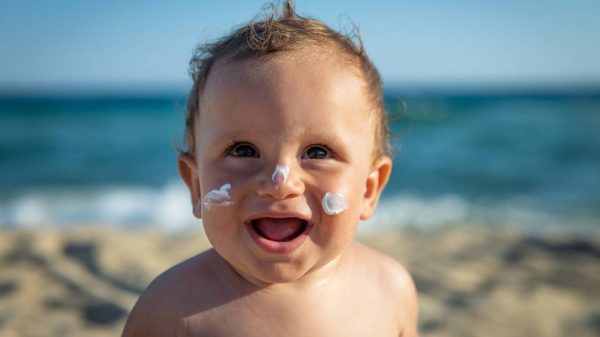
Best Sunscreen For Babies
Welcoming a new addition to the family is a joyous occasion, but along with the excitement comes the responsibility of ensuring their safety and well-being, especially when it comes to sun protection. Babies have delicate skin that requires special care and attention, making the choice of sunscreen a crucial decision for parents. In this comprehensive guide, we’ll explore the importance of sunscreen for babies and recommend some of the best options available to keep your little one’s skin safe and healthy.
Importance of Sunscreen for Babies
Before delving into specific products, you need to understand why sunscreen is essential for your baby’s skin. Babies’ skin is much more sensitive and delicate compared to adults, making them more susceptible to sun damage. Exposure to harmful UV rays at a young age can increase the risk of sunburn, skin damage, and even skin cancer later in life. Therefore, protecting your baby’s skin with a reliable sunscreen is vital for their overall health and well-being.
Key Features to Look for in Baby Sunscreens
Not all sunscreens are created equal, especially when it comes to infant skin. Here are some essential features to consider when choosing a baby sunscreen:
1. Broad-spectrum protection: Look for sunscreens that offer broad-spectrum protection against both UVA and UVB rays to ensure comprehensive coverage.
2. Gentle Formulation: Opt for sunscreens specifically formulated for babies, free from harsh chemicals, fragrances, and dyes that could irritate their sensitive skin.
3. Water Resistance: Babies are prone to sweating and drooling, so choose a water-resistant sunscreen that maintains its efficacy even during water activities or excessive perspiration.
4. High SPF: Select a sunscreen with a high Sun Protection Factor (SPF) of at least 30 or higher to provide adequate protection against the sun’s harmful rays.
5. Dermatologist Recommended: For additional peace of mind, take into account sunscreens that dermatologists or pediatricians recommend.
Top Best Sunscreen For Babies
Now that you understand what to look for, let’s explore some of the best baby sunscreens available on the market:
1. Babyganics Mineral-Based Baby Sunscreen Lotion: This gentle, mineral-based sunscreen is formulated with zinc oxide and titanium dioxide, providing broad-spectrum SPF 50 protection. Its non-allergenic and tear-free formula makes it suitable for even the most sensitive baby skin.
2. Aveeno Baby Continuous Protection Sensitive Skin Zinc Oxide Sunscreen: Formulated with naturally sourced zinc oxide, this sunscreen offers SPF 50 protection and is specially designed for baby’s sensitive skin. Its gentle formula is free from parabens, phthalates, and fragrances.
3. Coppertone Pure & Simple Baby SPF 50 Sunscreen Lotion: This dermatologist-tested sunscreen is made with naturally sourced zinc oxide and provides broad-spectrum SPF 50 protection. It’s hypoallergenic, fragrance-free, and gentle enough for daily use on baby’s delicate skin.
Frequently Asked Questions On Best Sunscreen for Babies
Conclusion
As parents, protecting our little ones from the sun’s harmful rays is a top priority. Choosing the right sunscreen for your baby is essential for their skin health and overall well-being. By selecting a sunscreen with broad-spectrum protection, gentle formulation, and high SPF, you can ensure that your baby stays safe and comfortable while enjoying outdoor activities. Consider the best sunscreen for babies mentioned above and pick one to provide your little one with the protection they need for healthy skin growth and development.

Leave a Reply